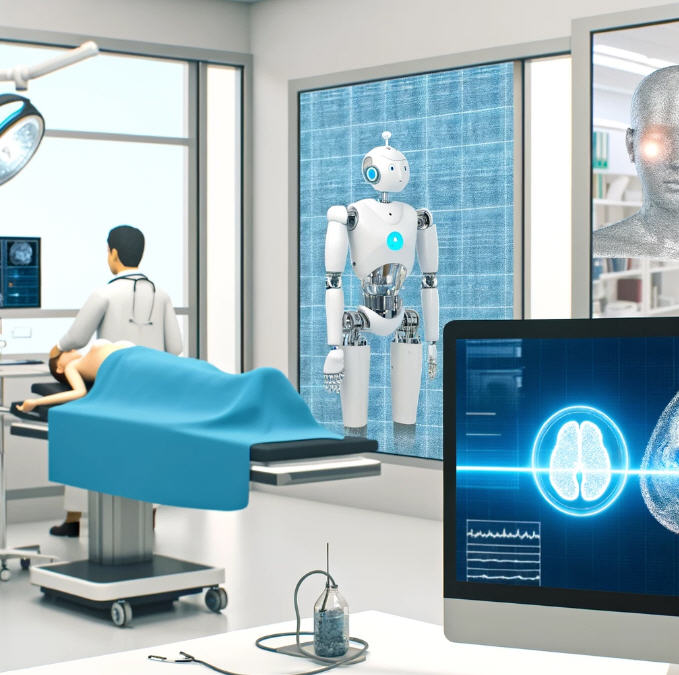The Impact of Artificial Intelligence on Modern Healthcare
In recent years, artificial intelligence (AI) has revolutionized multiple sectors, including healthcare. AI’s potential to improve healthcare outcomes, reduce costs, and enhance patient care is immense. This article delves into how AI is reshaping modern healthcare, the benefits it brings, and the challenges it presents.
Introduction to Artificial Intelligence in Healthcare
Artificial intelligence refers to the simulation of human intelligence in machines programmed to think like humans and mimic their actions. In healthcare, AI applications range from diagnostic procedures and treatment regimen recommendations to patient engagement and monitoring.
How AI is Transforming Healthcare
- Improved Diagnostics: AI algorithms can analyze complex medical data, significantly improving the accuracy and speed of diagnosis for diseases like cancer, heart conditions, and more.
- Personalized Medicine: By analyzing patient data, AI can help in creating personalized treatment plans that are more effective and have fewer side effects.
- Efficiency in Patient Care: AI-driven tools like chatbots and virtual health assistants can provide 24/7 support to patients, answering queries and offering guidance.
- Telemedicine: AI enhances telemedicine by enabling remote diagnostics and patient monitoring, making healthcare more accessible, especially in underserved areas.
- Robotic Surgery: AI-powered robots assist surgeons in performing precise surgical procedures, reducing the risk of complications and improving recovery times.
The Benefits of AI in Healthcare
- Increased Accuracy: AI algorithms reduce human error in diagnosing and treating diseases.
- Cost Reduction: Automating routine tasks with AI can lower healthcare costs by optimizing resources.
- Improved Patient Outcomes: Tailored treatment plans and early disease detection contribute to better patient outcomes.
- Enhanced Research: AI accelerates medical research by quickly analyzing vast amounts of data, leading to faster discoveries and innovations.
Challenges and Ethical Considerations
While AI has many benefits, it also raises ethical concerns and challenges, such as:
- Data Privacy: Ensuring the privacy and security of patient data is paramount in AI applications.
- Bias in AI Algorithms: There is a risk of bias in AI systems, which can lead to unequal treatment outcomes.
- Depersonalization of Care: Over-reliance on AI may lead to a decrease in personal interaction between patients and healthcare providers.
- Regulatory and Integration Issues: Integrating AI into existing healthcare systems and ensuring compliance with regulations pose significant challenges.
FAQ on AI in Healthcare
- Q: Can AI replace human doctors?
- A: While AI can assist and augment the work of medical professionals, it is not likely to replace human doctors entirely due to the need for empathy, ethical considerations, and complex decision-making in healthcare.
- Q: How does AI improve patient outcomes?
- A: AI improves patient outcomes by enabling more accurate diagnoses, personalized treatment plans, and early detection of diseases, which can lead to more effective interventions.
- Q: Is my data safe with AI healthcare applications?
- A: Data privacy is a major concern, but with proper regulations and security measures, AI healthcare applications can protect patient data effectively.
Conclusion
Artificial intelligence is transforming healthcare in profound ways, offering opportunities to improve patient care, reduce costs, and advance medical research. However, navigating the ethical and practical challenges of AI integration is crucial to fully realize its benefits. As AI technology advances, it promises to play an increasingly significant role in shaping the future of healthcare.



